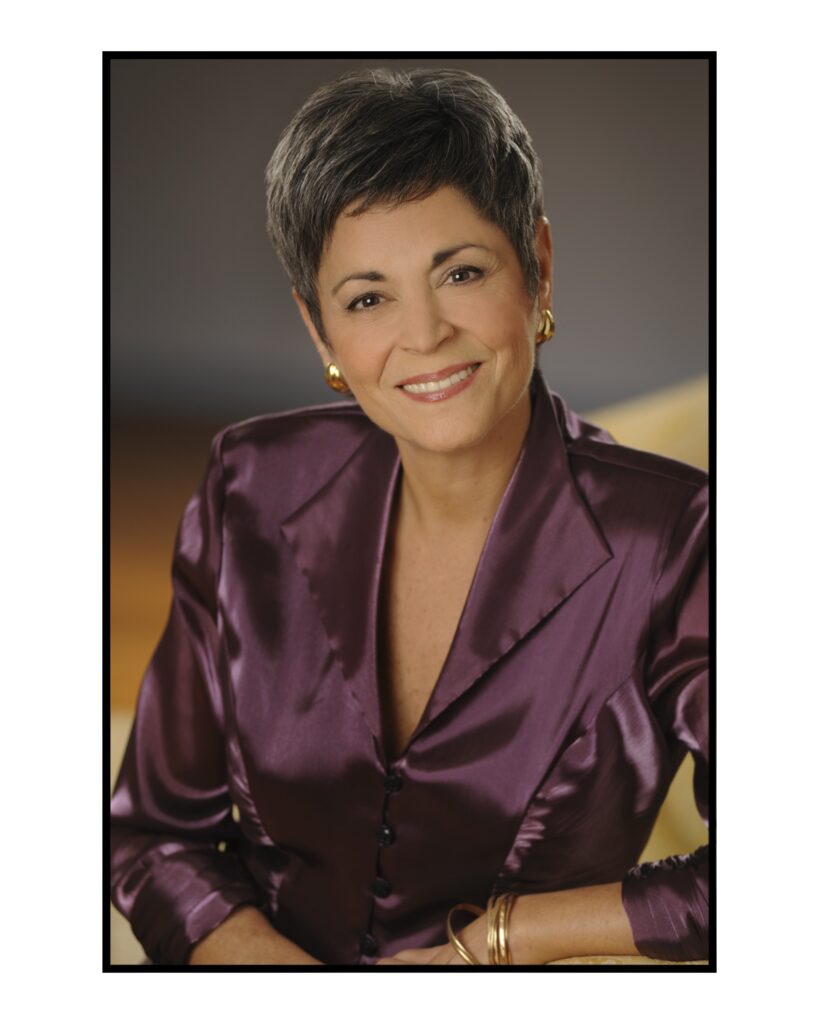

Member since 2013
Margaret Baroody
"Everyone deserves the opportunity to explore and develop their voice and their ability to find joy in expressing themselves through singing."
Member since 2013
Margaret Baroody
“Everyone deserves the opportunity to explore and develop their voice and their ability to find joy in expressing themselves through singing.”
Margaret Baroody is a highly respected singing teacher and Singing Voice Specialist with over 45 years experience in these areas of voice. She is on the voice faculty of The Peabody Conservatory of the Johns Hopkins University where she also teaches graduate level Vocal Pedagogy classes.
Ms. Baroody maintains a busy private voice studio. Her students have sung in the world’s major opera houses as well as being accepted into summer training programs as young artists and winning numerous awards and competitions.
EDUCATIONAL CREDENTIALS:
• The Academy of Vocal Arts
• The Philadelphia College of the Performing Arts, MM
• Converse College, BM
PROFESSIONAL AFFILIATIONS:
National Association of Teachers of Singing
The Voice Foundation
Pan American Vocology Association
American Association of Teachers of Singing
Ms. Baroody was a senior voice clinician in the voice medicine practice of Drs. Robert T. Sataloff and Karen Lyons in Philadelphia, Pennsylvania, for 29 years. Widely recognized for her work with injured voices, Ms. Baroody is in demand nationally as well as internationally as a lecturer on issues of vocal health. She has written frequently on the subject of singing, particularly with regard to the injured voice, the aging voice and vocal health. She is the author of over 25 published articles on voice. She is also a contributing author to numerous articles and books including VOCAL HEALTH AND PEDAGOGY, PROFESSIONAL VOICE: THE SCIENCE AND ART OF CLINICAL CARE .
Ms. Baroody is a professional mezzo-soprano with extensive performance experience in opera, oratorio and recital.
Genre Specializations/Research Interests
Genre: Classical Singing
Roles: Professional mezzo-soprano with extensive performance experience in opera, oratorio and recital
Teaching Philosophy
A singing teacher’s approach evolves over the course of a teaching career. The teacher gains new ways of dealing with old problems and ones understanding of the connection between voice, expression and personality grow. While I continue to learn from my students, patients, colleagues and others in the field, the primary goal of my teaching remains the same: To enable the singer to find a vocal technique that will allow full personal and artistic expression through their voice.
A singer needs to first have a clear understanding of how their voice works (the mechanics of vocal function) and second, how that translates into a technique that works for them. Simply stated, the foundation of any great vocal technique includes a strong and consistent breath management system, an absolute understanding of appropriate relaxations, including the kinesthetic awareness of an “open” or unstrained throat and the ability to identify optimum sensations of resonance or “tonal presence.” This knowledge is critical to enabling a singer to successfully pursue a professional career.
I also acknowledge that I do not have all the answers. If I or the student thinks that we are no longer progressing, I do not hesitate to help the student find a teacher who can move them towards their goals. It is always about what is best for the student.
Called to Teach
My mother was a lovely trained singer and both of my parents loved classical music. I sang from the time I was very young, often duets with my mother, and always had an interest in singing and singers. My mother took me to many live classical singing performances and from early on, I found myself making notes in the program about the vocal quality and technical approach, dramatic intent and my general impressions of the singers. I guess the die was cast very early in my life as to my eventual career path!
SPECIFIC PEDAGOGICAL OPINIONS FOR VOCAL QUESTIONS YOU FEEL ARE IMPORTANT:
I have been fascinated by the many ways in which the field of voice science and research has explained and, in fact, validated so many of the concepts that have been dominant in classical vocal pedagogy for over 300 years. Many teachers have been suspicious and fearful of voice science and historically, many in voice science and voice medicine have not fully understood or appreciated the great breadth of knowledge concerning voice that exists in the voice teaching community. As someone with a ‘foot in many camps” and the privilege to help with the training of singers, I take every opportunity to share my excitement about the power of the collaborative possibilities between all of the discipline involved in voice and how this collaboration has already facilitated tremendous advances not only in voice medicine but also in all areas of singing pedagogy and speech training.

